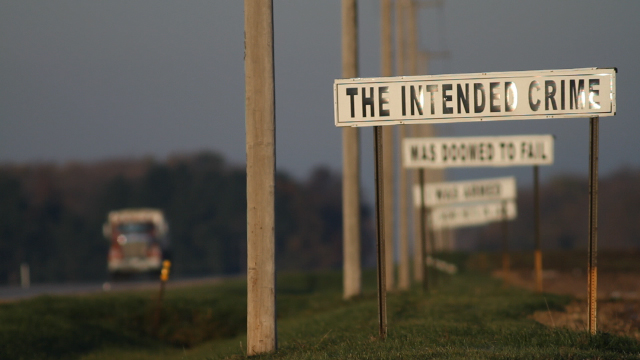What's behind growing gun rights support in the US?
- Published
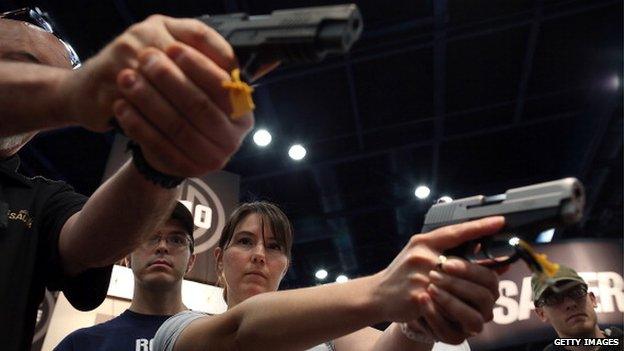
Reasons for gun ownership have shifted from hunting to protection in the last 15 years
A slim majority of Americans now support protection of gun rights over gun control. What's driving this support?
On Monday the families of children killed in the Sandy Hook school shooting filed a wrongful death lawsuit against Bushmaster Firearms International, a company that makes the AR-15, one of the guns Adam Lanza used in the December 2012 massacre.
The suit claims the firm knew the gun was unsuitable for public sales because it was designed for military use.
The shooting led to a push for new laws to restrict the sales of firearms nationally.
But efforts to change national laws failed, spurring backlash in some states.
Now researchers at the Pew Center have found that, two years after the shootings, support for gun rights has increased to 52%, a majority for the first time in the survey's history.
The number is up 8% since the aftermath of Sandy Hook.
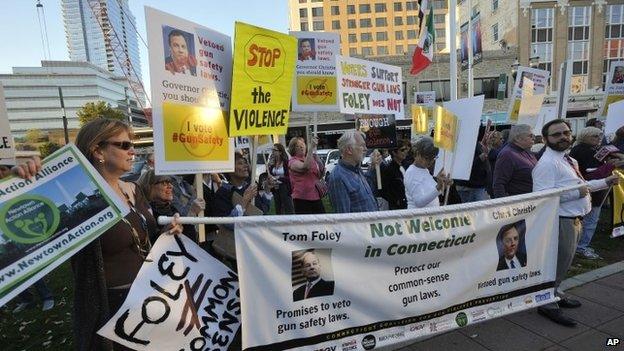
Gun control continues to be a strongly divisive issue - largely along party lines
Increased support for gun rights is a long-term trend that has become more pronounced since Barack Obama took office, says Carroll Doherty, director of political research at Pew. The issue is still strongly divisive, largely along partisan lines.
"This is not a reaction to any specific gun proposal," Doherty says, adding Pew saw "across-the-board change" since 2012 in favour of gun rights, with the exception of a few groups - self-identified liberal Democrats among them.
There is an increasing familiarity with guns in the US, and more states are passing "shall issue" laws - making gun licensing less discretionary, says Dr Jennifer Dawn Carlson, an American sociologist who teaches at the University of Toronto.
With an estimated 300 million guns in the US, Carlson says, "clearly there are more guns that are not involved in crime versus the opposite". Such firearms are associated with family and protection instead of crime.
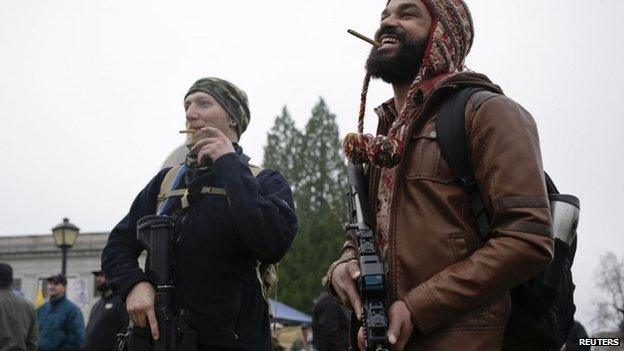
Protesters bring their firearms to a rally against new gun control rules in Washington state
"It's actually something that you make a part of your everyday life," Carlson says.
It's also important what gun owners are doing with their firearms. In many states, gun owners may "open carry" their firearm on their person, unconcealed. Others states require a licence to do so or ban it outright.
The open carry movement has pushed for more people to carry guns in public, and Texas could roll back its ban on open carry next year.
Such a public presence, Carlson says, desensitises people from the shock of seeing a gun and reduces the taboo around gun ownership.
"Gun ownership is increasingly seen as part of what it means to be a responsible citizen," she says.
"It's not just a right to self-defence but a duty to protect your family and community."
Protection was on the minds of those surveyed by Pew - 57% said they believe gun ownership protects people from becoming victims of crime, up from 48% in 2012.
In 1999 most Americans told the Pew survey they owned guns primarily for hunting. By 2013 it had flipped - the survey suggested Americans now owned guns primarily for protection.
The number is striking considering the violent crime rate in the US has halved in the last 20 years. But a recent survey, external suggested more than 60% of Americans believe crime is increasing.
This may be due to an overrepresentation of violent crime in television, film and local news coverage, says Dr Mark Warr, a researcher at the University of Texas, Austin.
"The public is presented with what I call a mirror-image or upside-down view of the world - what is truly rare is common on television, and what is truly common is rare," Warr says.
When people are asked to estimate the incidence of crime, they are more likely to use something called an "availability heuristic" - estimating the frequency of anything by the ease with which they can recall examples.
"Since crime is such a common news topic, people have little problem recalling numerous incidents of it," he says.
The feeling of needing guns to protect oneself from crime is also connected with a lack of confidence and trust in law enforcement.
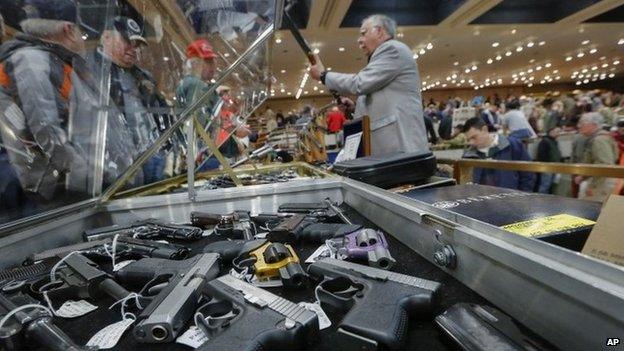
While general support for gun rights is growing, a similar survey shows even stronger support for certain gun control policies
"The idea that guns make sense because police won't always be there is pervasive across pro-gun discourse," Carlson says, and that's true among both white and black Americans.
In the Pew survey, the proportion of black Americans who say guns make people less likely to be the victim of a crime jumped between 2012 and 2014 - 29% to 54%. Yet black people are still among the staunchest supporters of gun control.
But support for protecting gun ownership does not necessarily mean no gun control at all, Doherty says. A separate survey done by Pew suggests more than 80% of Americans supported certain gun policy proposals, including increased background checks for those buying guns.
And Carlson says that there is a difference between more political advocates - those who argue ownership is a "God-given right" - and those who have taken to firearms out of more pragmatic reason.
"There are many pro-gun Americas," she says, adding: "Once you can exercise a right, it becomes a lot more meaningful to you."
- Published15 December 2014
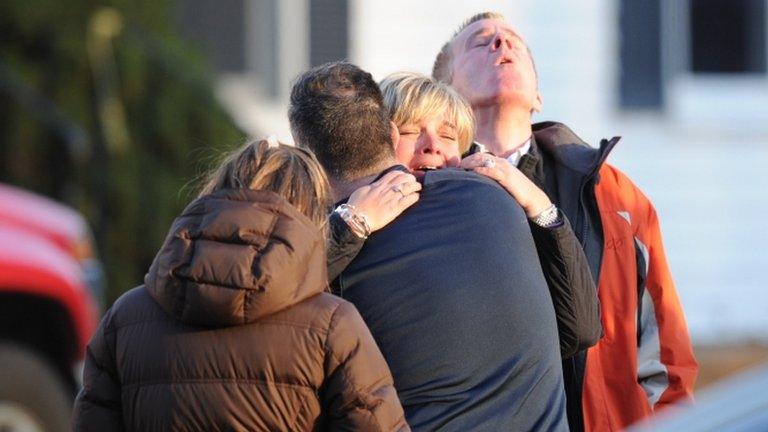
- Published21 July 2012
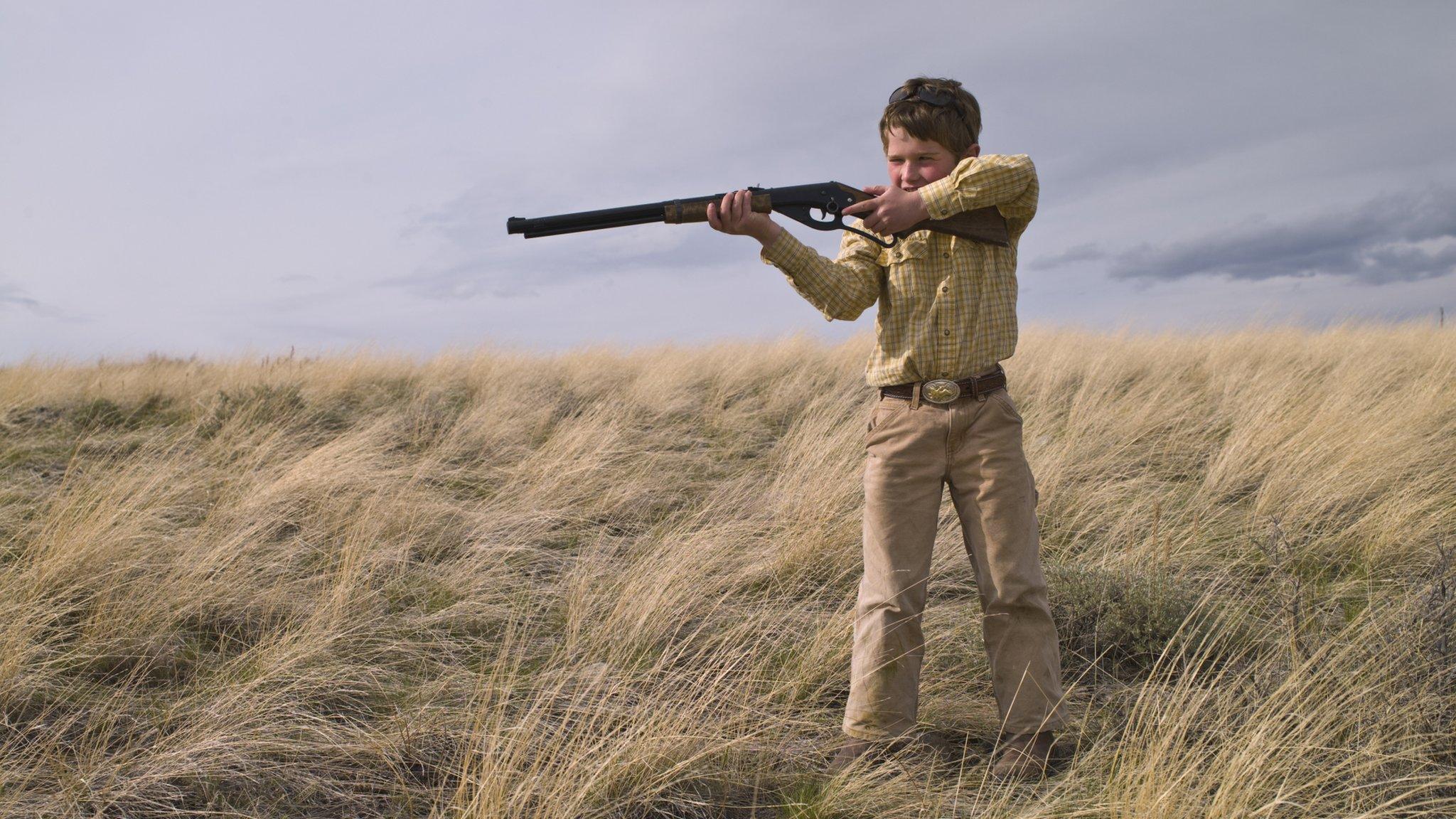
- Published18 December 2012
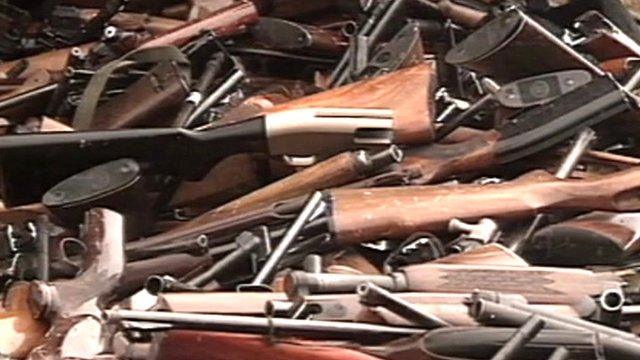
- Published9 January 2013
